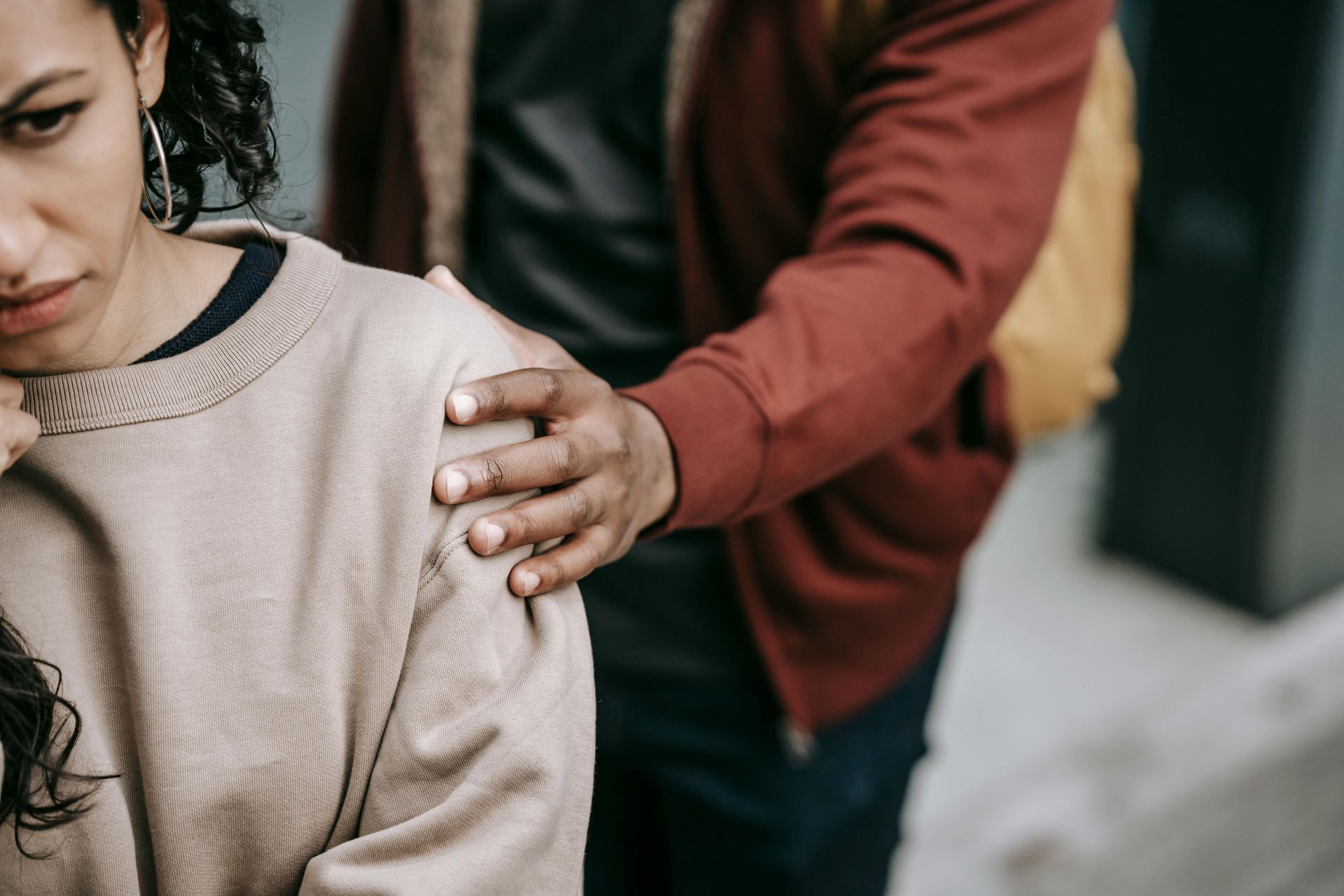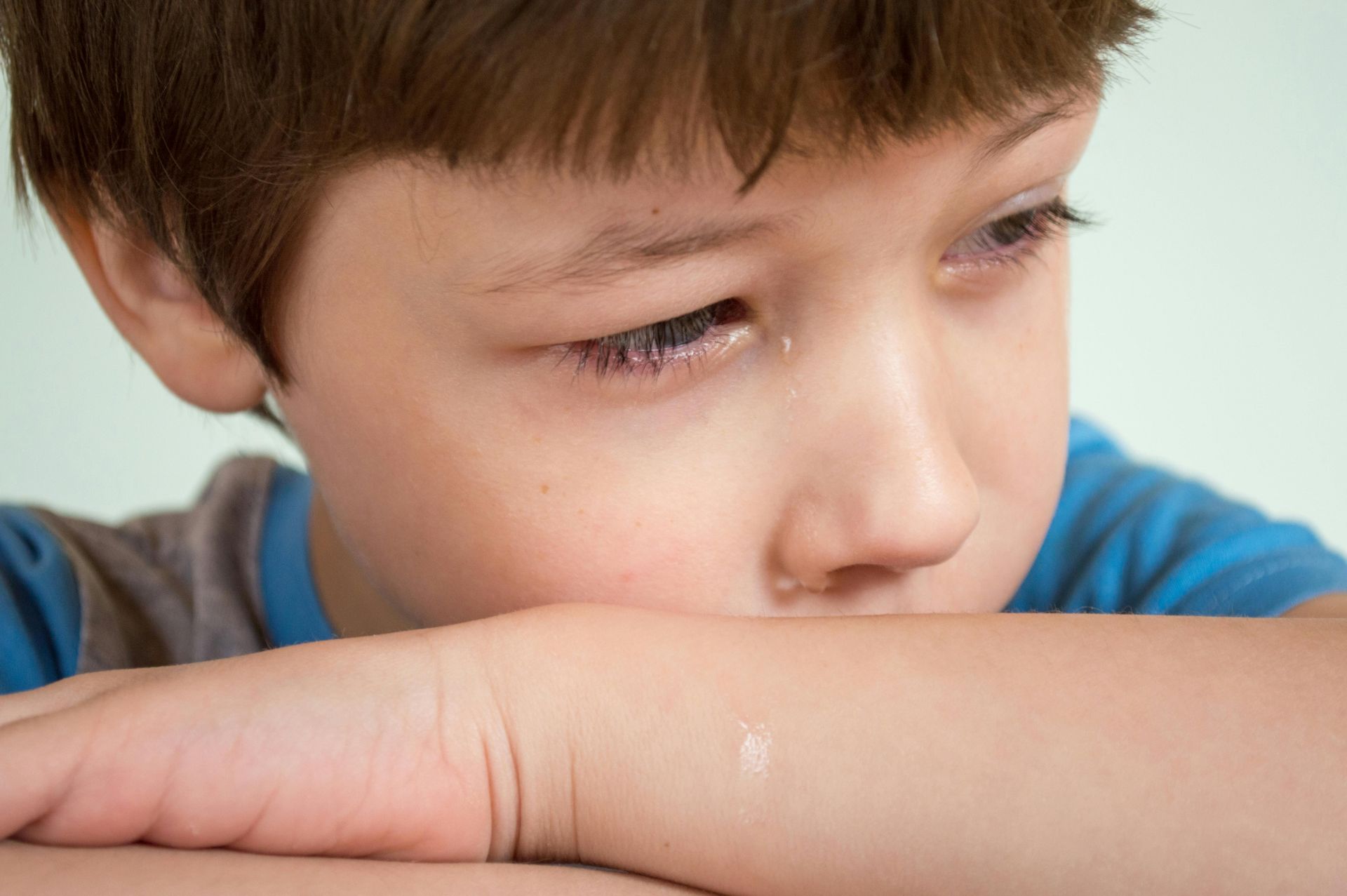Domestic Violence: A Crucial Insight Into Relationship Abuse-💜
CNS Healthcare • February 14, 2025
Living in an abusive relationship can feel overwhelming, isolating, and unsafe.
Domestic violence is not just about physical harm; it can also include emotional, sexual, and financial abuse. If you find yourself in an abusive relationship, know that you still have options and it's important to not give up hope.
Keep reading to understand the signs, impact, and resources available for victims of domestic violence, as well as how to find help and get support.
Key Takeaways
- Domestic violence includes physical, emotional, sexual, and financial abuse. It can affect people of all ages, genders, and backgrounds.
- Physical abuse impacts 1 in 3 women and 1 in 4 men in their lifetime (NCADV).
- Emotional abuse often causes lasting mental health issues like PTSD.
- Abuse follows a cycle: tension builds, violence occurs, and lastly, the abusers apologize during the “honeymoon phase.” This cycle repeats until victims seek help.
- Signs include controlling behavior, insults, fear of partner reactions, unexplained injuries, or isolation from loved ones. Financial control also prevents many survivors from seeking help.
- Resources like HAVEN (877-922-1274), the Oakland County Hotline, shelters, law enforcement, and support groups can help survivors escape safely and start healing.
What Is Domestic Violence?
Domestic violence is
abusive behavior used by one partner to control or gain power over another in intimate relationships. It affects people of all education levels, economic statuses, and sexual orientations.
This abuse can happen in
marriages, dating relationships, same-sex relationships, or between family members.
It includes
physical violence like hitting or choking, and emotional abuse that can harm your self-esteem. Domestic abuse also involves
sexual assault and financial control. For example, an abusive partner may restrict access to money.
These actions are part of a repeated pattern meant to dominate you emotionally, physically, or mentally. Once removed from an abusive situation, survivors often face long-term effects on their mental health and ability to form healthy relationships.
Types of Abuse in Domestic Violence
Abuse in relationships can take many forms, and each type of abuse will affect individuals differently.
Physical Abuse
Physical abuse is the act of using force to hurt or control someone. This includes hitting, punching, slapping, choking, biting, kicking, or any
violent behavior where the abuser intends to cause harm. It may also involve restraining a victim against their will or throwing objects to intimidate.
Intimate partner violence as described above often happens at home and
tends to get worse over time.
A victim might feel trapped because leaving could mean they would be facing immediate danger. Survivors of domestic violence sometimes need
medical care for injuries like broken bones or bruises. Physical abuse can also lead to chronic pain and other long-term health problems.
According to the National Coalition Against Domestic Violence, 1 in 3 women and 1 in 4 men experience physical during their lifetime.
I stayed because I thought it would stop—but it didn’t, says a survivor at TheHotline.org.
If you are afraid for your safety, law enforcement agencies can help free you from an abusive relationship by issuing restraining orders. Local resources include support groups like CNS Healthcare of Michigan, and safety planning strategies.
Emotional and Psychological Abuse
Emotional and psychological abuse
involves actions like insults, threats, and manipulation to control you emotionally. A partner may use coercive control, track your browser history, or make you feel isolated from friends and family.
An abuser might track your browser history or
blame you for their behavior, which only adds to the pain.
This pattern of behavior creates fear in relationships. Over time, it can lead to low self-esteem and even post-traumatic stress disorder (PTSD). Many domestic violence survivors struggle with these effects long after leaving an abusive situation.
Sexual Abuse
Sexual abuse in relationships is all about control. It involves forcing or pressuring someone into
sexual acts without consent, and can take place between current or former partners.
Sexual abuse often makes victims feel ashamed or afraid to speak out, but there are resources that can help.
The National Domestic Violence Hotline can provide
confidential support if you're experiencing this type of harm.
Seeking help from local programs and trusted social workers can be a step toward healing.
Financial Abuse
Financial abuse
occurs when a partner controls your money to gain power over you, by taking your money, limiting access to bank accounts, or preventing you from working.
You might face restrictions on spending or be forced into debt under their control. It’s not about money alone; it’s about
taking away independence.
Recognizing these signs is crucial for breaking free from the cycle of violence and finding help in Oakland County.
The Cycle of Abuse and Power Dynamics
Abuse often follows
a repeating cycle that traps its victims. It begins with tension building, where small conflicts grow and the abuser becomes more controlling. This leads to an explosive incident, like physical violence or severe emotional harm.
Next, a
“honeymoon phase” may occur. The abuser may apologize, make promises to change, or act lovingly. Over time, this cycle repeats.
Power and control are at the center of abuse in relationships. Understanding this pattern is key to breaking free from domestic violence.
Impact of Domestic Violence
Domestic violence can affect every part of a person’s life. It can also cause long-term damage to mental, emotional, and physical health.
Effects On Victims
After experiencing abuse,
victims may feel fear, guilt, shame and be wary of trusting others.
Mental health issues like anxiety, depression, and PTSD are common effects of family violence, elder abuse, and dating abuse. Victims may also struggle with self-worth or isolation.
Local resources and support centers in Washington D.C. can offer you unique support created for survivors of violence.
Effects On Children
Children exposed to domestic violence often struggle with their mental health.
Some may feel
anxious, depressed, or struggle in school. Others might develop trust issues or fear forming relationships.
The effects of dating violence or abuse at home don't stay confined to the household.
Kids who witness abuse may mimic abusive behaviors as adults. The Disease Control Center stresses the importance of early support for children of abuse.
Seek out additional
resources and support if you notice any of the following signs in a child you care about.
How to Recognize Signs of Abuse
Abuse often starts small but can grow over time. Learning to spot the signs early can help protect you or someone you care about.
- Notice if your partner controls who you see, where you go, or what you do. This is a sign of power and control.
- Pay attention to frequent insults that damage your self-esteem. Emotional abuse is just as harmful as physical abuse.
- Watch for sudden changes in mood or behavior when talking to your partner. Fear of making them angry may be a red flag.
- Look for signs of physical harm, such as bruises, cuts, or other injuries, even if the person makes excuses for them.
- Recognize signs of financial control, are they are taking your money or not letting you access your own bank account?
- A clear sign of abuse occurs when your partner pressures you into things you're not comfortable with, such as sexual act against your will.
- Be alert if they isolate you from friends and family by saying they don’t trust others around you.
- Observe if they blame you for their actions or justify their abuse by saying it's because of something you did.
- Recognize fear in yourself or others when making simple decisions around the abusive partner.
- Trust how situations make you feel—if something feels wrong, it’s worth paying attention to it and seeking support from a trusted source like the National Network for Victims of Crime in DC.
Resources and Support for Survivors
Oakland County has many resources to help end domestic violence and support survivors.
- Oakland County Domestic Violence Hotline: Call the county's confidential hotline to speak with trained professionals. They can guide you through your options and connect you with services.
- HAVEN in Pontiac, Michigan: HAVEN provides emergency shelter, counseling, legal advocacy, and more for survivors of abuse. Their 24-hour crisis line is available at 877-922-1274.
- Oakland Family Services: This trusted organization offers therapy, mental health support, and family services to survivors looking for healing.
- Local Police Departments: Report any immediate danger or threats by contacting your local law enforcement agency for protection or intervention. Officers are trained to handle abuse cases respectfully.
- Counseling Centers in Oakland County: Many mental health clinics offer specialized sessions for trauma caused by domestic violence. Therapy can help rebuild mental well-being after abuse.
- Legal Aid Clinics: Free or low-cost legal help is available in Oakland County for filing restraining orders, custody disputes, or other legal needs related to abusive relationships.
- Online Support Groups: Virtual platforms allow you to connect anonymously with others who understand your experience while offering advice and emotional support.
Conclusion
Domestic violence can take many different forms, yet all
abuse is about power, control, and causing harm in relationships.
You now know the signs, types of abuse, and the impact it can have on its victims. If you
suspect abuse or face it yourself, take steps to get help safely.
Your actions can create change for yourself or others who suffer silently. Together, more understanding leads to stronger communities free of violence.
FAQs
1. What are the different ways domestic violence can occur?
Domestic violence can take many forms, including physical violence, emotional abuse, financial control, and isolation from friends or family.
2. How can someone recognize signs of relationship abuse?
Abuse may show up as controlling behavior, threats, constant criticism, or unpredictable anger. Other signs include monitoring their victim's activities, or restricting access to money and resources.
3. What steps should I take if I suspect someone is experiencing domestic violence?
Offer support without judgment and encourage them to seek help from trusted organizations or hotlines.
4. Are there safe ways to find information about domestic violence online?
Yes, use private browsing modes on your device and clear your search history after visiting websites for help. Many sites also have quick exit buttons for added safety while searching discreetly.
Newsletter
Stay up to date by subscribing to our newsletter.
Recent Posts
SHARE THIS POST WITH YOUR FRIENDS















